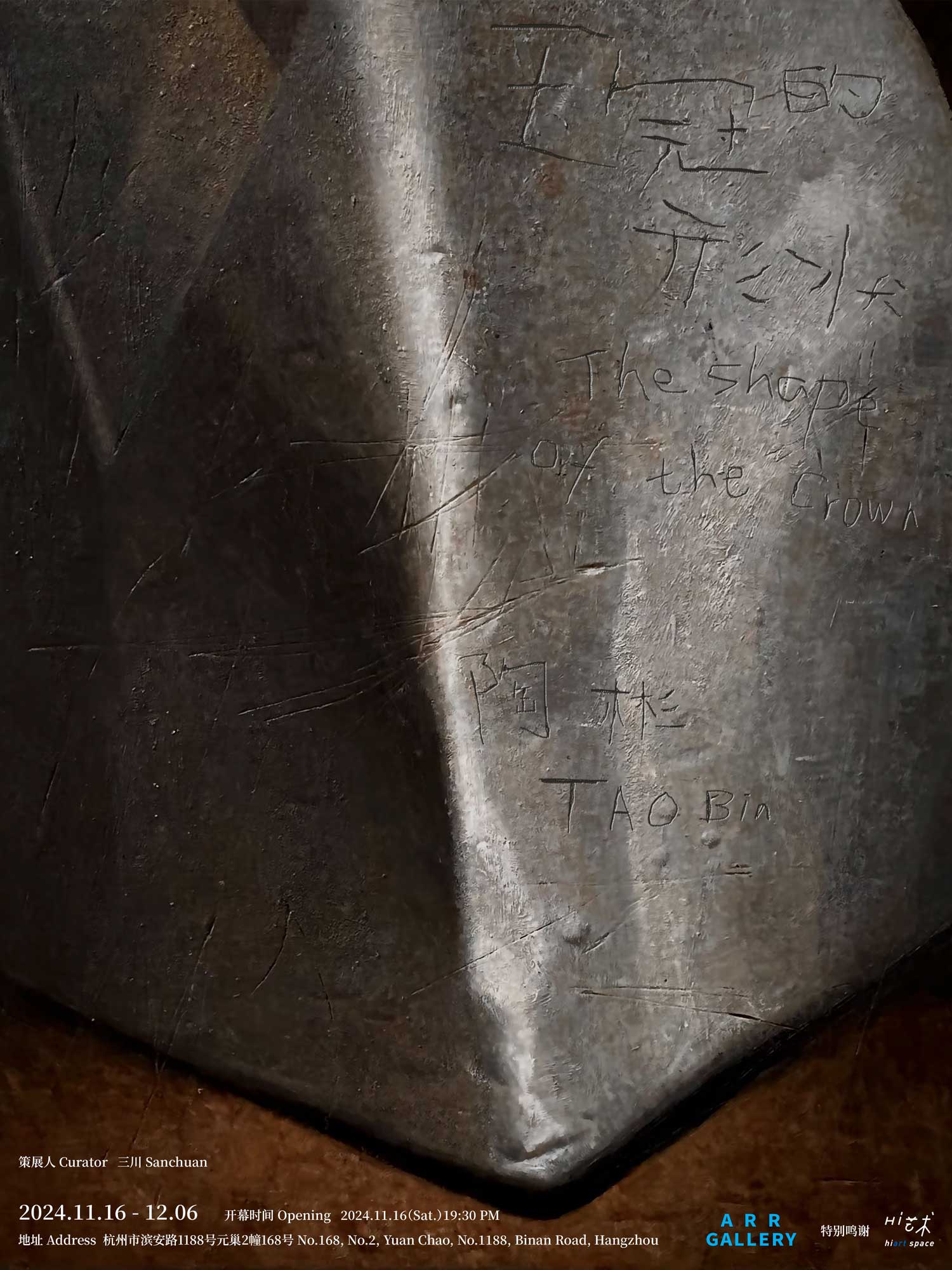Tao Bin insists on crafting all his frames by hand, resulting in frames significantly heavier than standard ones— itis a “necessary action” rooted in an instinctive shift within his creative experience. In a Shanxi antique market, he once felt a peculiar connection between his own fate and the scattered farm tools at one vendor’s stall—tools that, like him, had retreated from the specific contexts of their functional roles in society. This realization led Tao Bin to channel his creative impulses for mixed media into these abandoned tools, choosing not to view them in their entirety but focusing on select parts instead. The meticulous traces of use in his paintings testify to the weight of this gaze, with another layer of weight added by the self-developed cement mixture poured at the base of each piece. This cement provides a solid foundation for the paintings while also creating a psychological heaviness for the artist, serving as an almost causeless yet essential prerequisite before he begins his work. Thus, from the choice
of wood for the frames to the selection of objects within the paintings, Tao Bin’s creative process starts with the frame itself, outlining a transcendent, inner drive—a dual effort at restoring meaning and constructing subjectivity. The objects in his paintings are not, at first, what Kant described as “the thing in itself”; rather, they are what Tao Bin considers “retired objects.” Once they arrive in his studio from the antique market, they acquire a new destiny, becoming “epoché” objects suspended in the artist’s attentive gaze. Their existence, or evidence thereof, is being revalidated through his paintings, halting the imagination of their social functions within the image itself. This represents artist’s personal intervention, where meaning in the process may not need explicit articulation. Both the creator and the created attain a self-sufficient, transcendent state through this interaction, and the eternal crown should be bestowed upon those who act without cause in the present moment.

